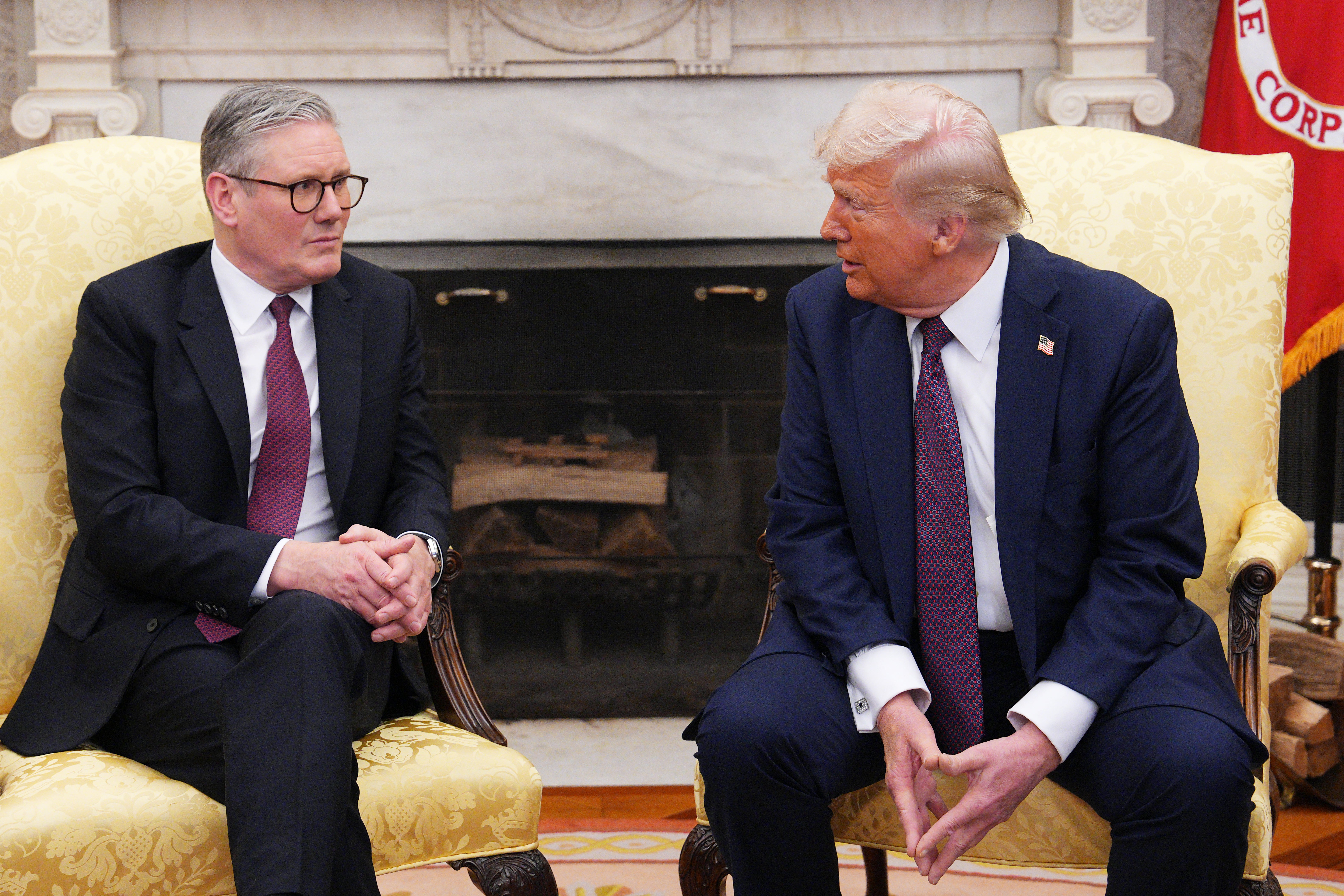Walmart has warned customers that they could see price rises as soon as this month as a result of President Donald Trump’s trade tariffs.
The retailer’s chief financial officer John David Rainey said that the tariffs are “still too high.”
“We’re wired for everyday low prices, but the magnitude of these increases is more than any retailer can absorb,” Rainey told CNBC.
“It’s more than any supplier can absorb. And so I’m concerned that consumer is going to start seeing higher prices,” he said. “You’ll begin to see that, likely towards the tail end of this month, and then certainly much more in June.”
Walmart’s first quarter profit slipped as the world’s largest retailer said it was not immune to the impact of the tariffs. The company expects sales to increase 3.5 percent to 4.5 percent in the second quarter, but did not issue a profit outlook because Trump’s tariff policies are constantly changing.
It is among the first major U.S. retailers to report financial results, which provide a hint as to the mood of the American shopper and how the tariffs are impacting its business.
Walmart earned $4.45 billion, or 56 cents per share, in the quarter ended April 30, down from $5.10 billion, or 63 cents per share, in the same period last year.
Revenue rose 2.5 percent to $165.61 billion, just short of analyst estimates.
Walmart’s U.S. comparable sales — those from established physical stores and online channels — rose 4.5 percent in the second quarter, though that’s slowed from a 4.6 percent bump in the previous quarter, and a 5.3 percent increase in the third quarter of 2024.
Economists long warned that most companies would be forced to pass on the price increase to consumers.
Trump’s tariffs have increased the cost of toys, mattresses, strollers and other products after he slapped 10 percent duties on goods entering the U.S. from most countries.
Trump’s tariffs on China, which saw the two countries at loggerheads for weeks, and other countries threaten the low-price model that is at the core of Walmart’s success.

Trump’s threatened 145 percent import taxes on China were reduced to 30 percent after the two nations called a truce over the weekend, but the damage appears to have been done.
While Trump was reluctant to lower tariffs against Beijing too quickly, several senior White House staffers warned the president that the penalties were placing his own supporters in danger, The Washington Post reported this week.
Walmart’s CEO Doug McMillon said that the company will “do our best” to keep prices low, but echoed Rainey’s comments.
“Given the magnitude of the tariffs, even at the reduced levels announced this week, we aren’t able to absorb all the pressure given the reality of narrow retail margins,” McMillon said.
Many Americans have been pulling back on spending as they grow uneasy about the economy, and inflation remains elevated.
U.S. consumers spent slightly more at retail stores in March after ramping up their shopping to get ahead of tariffs. Sales at retail stores and restaurants rose just 0.1 percent in April from March, a sharp slowdown from a 1.7 percent gain in the previous month.

Consumer prices have risen 2.3 percent in April compared with a year earlier, according to the Department of Labor report published Tuesday. April’s consumer-price index report was the first to capture the aftermath of Trump’s ‘Liberation Day’ tariff announcements on April 2, causing the stock market to plummet.
On a monthly basis, prices rose modestly, increasing 0.2 percent from March to April after falling 0.1 percent the previous month. Grocery prices fell 0.4 percent, pulled down in part by a big 12.7 percent drop in the price of eggs, which was the first decline in price in months.
The president has long argued that his global tariffs will boost American manufacturing and increase U.S. jobs. “In the end it’s going to be a beautiful thing,” Trump said last month.
Trump also claimed last month that the U.S. had struck “200 trade deals”, but didn’t specify which countries.
He announced that the U.S. reached a trade agreement with the United Kingdom last week, achieving a series of significant carve-outs from sweeping tariffs on carmakers, steelworks and farmers.
The U.S. agreed to ease the 25 percent tariff on vehicles to 10 percent for 100,000 vehicles and eliminate steel tariffs in a win for the U.K.
The Associated Press contributed reporting
Trump’s birthright case heads to SCOTUS and could reshape presidential power.
Nato ally attacks Starmer’s ‘coalition of the willing’ for Ukraine
Ukraine war latest: Trump says peace won’t happen until ‘Putin and I get together’
US applications for jobless benefits hold firm as layoffs remain low despite tariff uncertainty
Los Angeles 2028 to feature ‘unprecedented’ Olympic Games first
Sean 'Diddy' Combs' lawyers plan to press Cassie about infidelity during cross-examination







